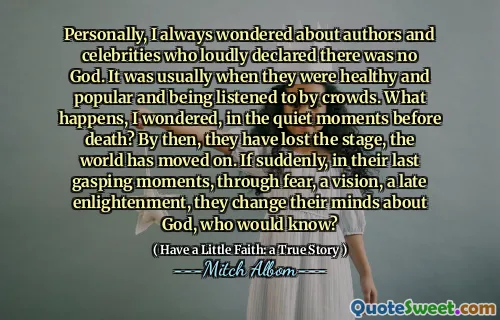Man corrupt everything, say Shug. He on your box of grits, in your head, and all over the radio. He try to make you think he everywhere. Soon as you think he everywhere, you think he God. But he ain't. Whenever you trying to pray, and man plop himself on the other end of it, tell him to git lost, say Shug. Conjure up the flowers, wind, water, a big rock.
The quote from Alice Walker's "The Color Purple" illustrates the pervasive influence of man and societal norms on individual thought and spirituality. Shug emphasizes that while it may seem as if man's voice is omnipresent, it should not overshadow one's relationship with the divine. The intrusion of man's ideas can distort one's perception, leading to the misconception that human authority equates to divine authority.
Shug advises rejecting the distractions of man's influence when seeking a connection with a higher power. Instead of allowing human concerns to cloud one's prayers, she encourages focusing on nature and elemental forces—like flowers, wind, and water—as representations of the divine. This call to turn away from societal pressures highlights the importance of finding genuine spiritual connections beyond human interference.





